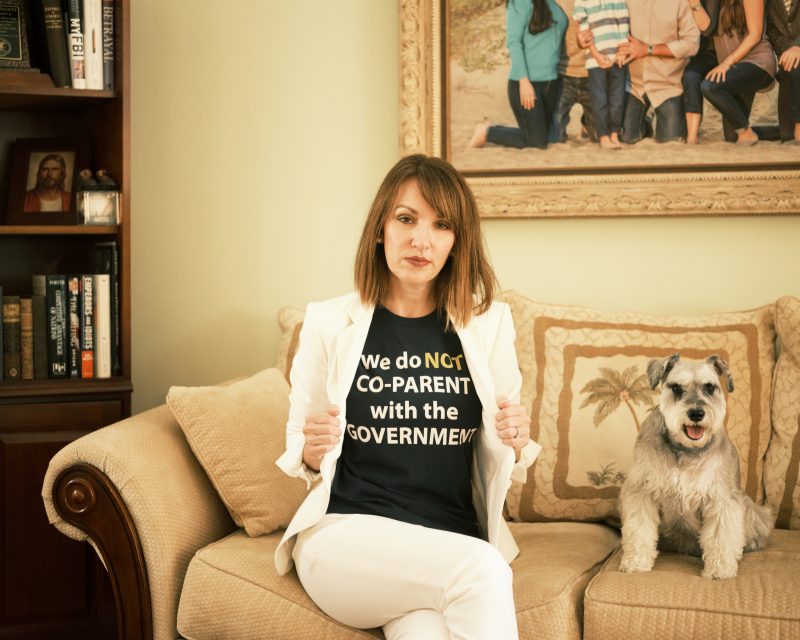To hear prominent Republicans tell it, theirs is the party of parents. This is somewhere downstream from Donald Trump’s eagerness to turn the corner on the coronavirus pandemic in 2020, which intertwined with parents’ frustration about their kids not being in school. After President Biden was inaugurated, the party and its media allies elevated and stoked parental discontent about how race was taught and gender addressed in schools. Stephen K. Bannon advocated that conservatives run for local school boards; Florida Gov. Ron DeSantis (R) endorsed several such candidates who won.
As he’s tried to find his footing in his bid for the 2024 Republican presidential nomination, DeSantis has attempted to leverage these appeals to parenthood. He’s been an advocate for Moms for Liberty, a right-wing organization that’s been identified as an extremist group by the Southern Poverty Law Center. His wife, Casey, has been at the forefront of a subset of supporters of his campaign, dubbed “Mamas for DeSantis.”
Given all of that, you would be forgiven for assuming that parents — and mothers in particular — are a central component of Republican or conservative politics. And perhaps the goal is that someday they might be. But right now? Mothers are much more blue than red.
When Elon Musk randomly disparaged those without children earlier this month, I looked at the politics and ideology of those who have kids in the United States. Using data from the 2021 iteration of the national General Social Survey (GSS), I found that those without children were 32 points more likely to identify as Democrats than Republicans, most of them identifying as liberal Democrats.
Among those with kids under 18, the gap was narrower but still existent: They were 22 points more likely to be Democrats than Republicans (and more likely to be moderate). It was only parents with at least one child over 17 where party identification was about equal. They were more likely to be conservative Republicans than liberal Democrats by nine percentage points.
There’s an obvious factor at play here: age. Nine in 10 of those who had kids under 18 in the 2021 GSS were 45 or younger. Nine in 10 of those who had at least one adult child were over 45. And the older Americans are, the more likely they are to be Republicans or conservatives.
The results above are also intermingled with gender. Among women, even those with adult kids are about 10 points more likely to be Democrats than Republicans. Among men, those with adult kids are nine points more likely to be Republican.
Interestingly, there isn’t much difference in the political views of younger and older mothers. There weren’t enough women over the age of 45 with kids under the age of 18 to break out their politics, but the differences between older and younger women are otherwise similar. Older women with adult kids are about six points more likely to be more Republican, a relatively subtle distinction.
Among men, there’s a much wider gap. Older fathers are more conservative than younger fathers — just as older men without kids are more conservative than younger men without kids.
The difference in the politics between parents with at least one child and adults with no kids is centrally a function of the difference among men.
This data comports with analysis published Tuesday by Chartbeat, an outlet focused on education. Looking at a number of polls, it found that dissatisfaction with schools isn’t driven by the parents who have kids but by those without kids in school.
Again, this is perhaps an effort by the Republican Party to gain traction with young parents by highlighting ways in which educational systems are underperforming. Perhaps it will work, though another common pattern in the United States is that people view their own surroundings positively even if they have a negative outlook on the big picture.
But the takeaway from the GSS isn’t that the GOP is the party of parents. It’s that it’s the party of older dads.

